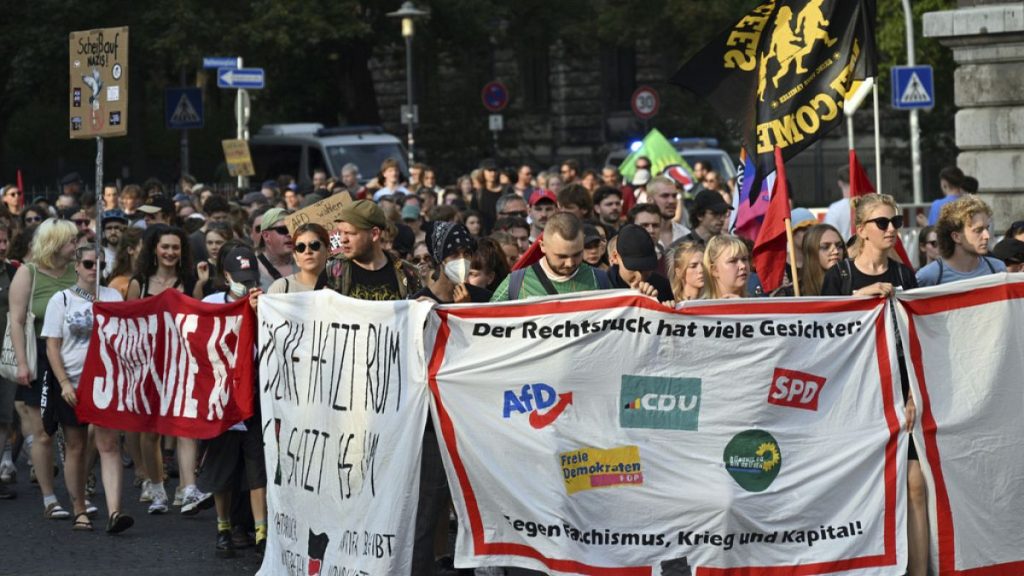The results of recent regional elections in Saxony and Thuringia, Germany have caused concern throughout Europe, particularly due to the victory of the far-right Alternative for Germany (AfD) party in Thuringia. The AfD has been criticized for its relativism and ambiguity regarding Germany’s Nazi past. The rise of these parties has raised questions about their potential influence on Germany’s energy transition and support for Ukraine. However, it is important to note that foreign policy decisions are not made at the regional level, and support for Ukraine remains strong in Germany and Europe, despite the rise of extremist parties.
While the AfD and other populist parties may have gained ground in the regional elections, it is unlikely that they will form a governing coalition. The strong anti-Ukrainian and pro-Russian sentiments expressed by these parties may be influential, but ultimately foreign policy decisions are made at the federal level. According to Peter Hefele, policy director at a think tank in Brussels, the support for Ukraine remains high in Germany and Europe, regardless of the sentiments expressed by extremist parties. It is crucial to address the concerns and hopes of young people to shape the future and prevent the growth of extremist views.
One of the notable outcomes of the recent elections has been the decline in support for the Green party, which is part of the governing coalition in Berlin. In Thuringia, the Green party failed to secure any seats in the legislature. This has raised questions about the future of Germany’s ambitious energy transition goals. However, German Green MEP Michael Bloss emphasizes that the transition is working and Germany is making progress in renewable energy. He believes that more focus should be placed on acknowledging the achievements, particularly in the eastern parts of Germany.
The transition towards renewable energy in Germany has been a significant success story, with the country becoming a world leader in renewables’ acceleration. Despite the challenges faced in the eastern parts of Germany, progress has been made and achievements should be celebrated. It is important to highlight the positive impact of the energy transition and address the concerns of all regions to ensure continued success. The decline in support for the Green party in the recent elections does not necessarily indicate a setback for the energy transition goals, but rather a need for more effective communication and recognition of achievements.
The shockwaves from the regional elections in Saxony and Thuringia have sparked debates about the future direction of Germany’s energy transition and its stance on supporting Ukraine. The rise of extremist parties has raised concerns about the influence they may have on policy decisions, but it is important to remember that foreign policy decisions are made at the federal level. Despite the challenges and setbacks, Germany’s commitment to renewable energy and support for Ukraine remains strong. It is essential to address the concerns of all regions and work towards a sustainable future for Germany and Europe.













